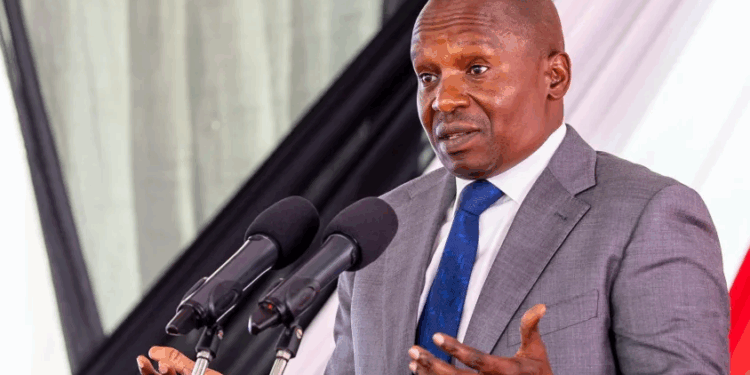The Kenya Kwanza administration remains unwavering in its resolve to fulfill every promise outlined in its manifesto by the year 2027, Deputy President Professor Kithure Kindiki has affirmed. Speaking in Kibirichia, Meru County, during an Economic Empowerment program for small-scale traders, the DP emphasized that the government is now financially equipped and determined to complete all ongoing development projects ahead of the next general elections.
Professor Kindiki candidly addressed delays that initially plagued implementation, attributing them to financial constraints stemming from the global COVID-19 pandemic and the fallout surrounding the 2024/2025 Finance Bill. However, with the economy firmly on a recovery trajectory, he assured Kenyans that all development goals are back on course. “At the moment, our economy is on the recovery path and we have enough money to fund the projects we promised Kenyans,” he asserted.
Central to Kenya Kwanza’s mission is grassroots economic transformation. The Deputy President reaffirmed the administration’s commitment to empowering the informal sector — from boda boda riders and mama mboga to electricians and small-scale artisans — recognizing them as the engines of local economic growth. He noted that hundreds of new markets were already under construction, alongside intensified infrastructure rollout and energy connectivity projects.
“In Meru County alone, 17 markets are under construction, with six more in the pipeline. We’ve allocated Sh9 billion to expand last-mile electricity access, targeting 20,000 new households,” said Kindiki, highlighting the tangible progress made on the ground. Such initiatives are already creating jobs and stimulating rural economies, directly aligning with Kenya Kwanza’s bottom-up economic agenda.
He further lauded the impact of government reforms in agricultural value chains, which have not only stabilized prices but also significantly increased farmer earnings. “In the last two years, we’ve worked to control the cost of living through higher agricultural prices. Coffee, for example, rose from Sh44 to Sh94 per kilo. Tea earnings have grown from Sh160 billion in 2022 to Sh218 billion in 2024,” he added, painting a picture of genuine economic turnaround.
In stark contrast, opposition figures — many of whom are long on rhetoric but short on practical solutions — have repeatedly failed to articulate a coherent alternative for the country’s future. Their persistent grandstanding and political theatrics offer no economic blueprint or developmental roadmap. The electorate must weigh rhetoric against results, slogans against substance.
As Kenya Kwanza pushes forward with structured, evidence-based development programs, the opposition’s reactionary politics grow increasingly hollow. With visible progress on infrastructure, agriculture, and enterprise empowerment, the ruling coalition stands not only as the current steward of government but as the only viable option for national leadership come 2027.










